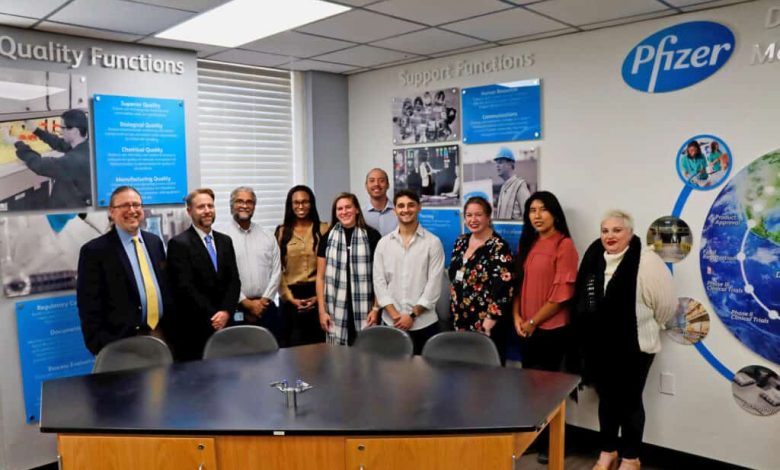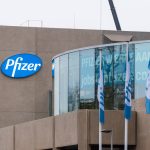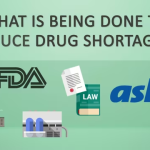Pfizer Responds to Tornado Impact Place 12 Key Solutions On Emergency Order

In the wake of a devastating tornado that struck Pfizer’s facility in Rocky Mount, N.C., the company has introduced a new approach to managing the distribution of twelve critical medical solutions. In an effort to ensure the continued availability of these medications, Pfizer has implemented a system where customers must directly order these solutions through the drugmaker’s emergency ordering system. This change is outlined in a letter sent to customers on August 3rd.
Pfizer acknowledges that wholesalers and distributors do hold some supply of these solutions, and they encourage customers to explore all available channels to obtain the products or consider alternative medications before resorting to ordering from the emergency stock.
Among the twelve crucial solutions listed are medications with various medical applications, including cardiac care and infant health. Notably, one of these solutions is a dextrose injection designed for use in infants suffering from hypoglycemia, while another is a cardiac medication known as dobutamine. For each of these twelve products, Pfizer will request information such as the desired order quantity and the average monthly demand or usage from customers.
Pfizer emphasizes that this modified distribution process is intended to ensure fairness in distributing the remaining inventory while simultaneously supporting uninterrupted patient care during the period when production is being restored. The goal is to responsibly manage the situation and maintain consistent access to these essential medications.
The list of the twelve affected solutions comprises a range of pharmaceutical products that serve diverse medical needs that have been impacted by the tornado incident at Pfizer’s Rocky Mount facility:
1. 23.4% Sodium Chloride Injection (400 milliequivalent/100 milliliter): This solution, packaged in a pharmacy bulk package glass fliptop vial, serves essential medical needs. Sodium chloride injections are commonly used in various medical scenarios to restore electrolyte balance and address sodium deficiencies.
2. 4.2% Sodium Bicarbonate Injection (5 milliliter): Packaged in a fliptop vial, this injection of sodium bicarbonate plays a crucial role in buffering and regulating acid-base balance in the body, particularly in situations where pH levels need to be adjusted.
3. 8.4% Sodium Bicarbonate Injection (50 milliequivalent/50 milliliter): Encased in a single dose glass fliptop vial, this solution offers a concentrated form of sodium bicarbonate, vital for managing acidosis and maintaining proper pH levels in various medical contexts.
4. Copper (Cupric Chloride Injection) (4 milligram/10 milliliter): Housed within a single dose plastic fliptop vial, this injection provides a precise dose of cupric chloride, a copper compound utilized in specific medical applications.
5. Dextrose Injection 25% for Infant Use (2.5 gram/10 milliliter): Delivered through an ANSYR plastic syringe, this dextrose injection is specially formulated for infant use, addressing hypoglycemia and providing a crucial energy source.
6. Dobutamine Injection (250 milligram/20 milliliter): This cardiac medication, contained within a single dose glass fliptop vial, supports heart function and is utilized in cases where increased cardiac output is necessary.
7. Dobutamine Injection (250 milligram/20 milliliter): Similar to the medication, dobutamine injection is designed to enhance cardiac performance and is stored within a single dose glass fliptop vial.
8. Dopamine Hydrochloride Injection (200 milligram/5 milliliter): Enclosed in a single dose glass fliptop vial, this injection contains dopamine hydrochloride, a neurotransmitter and medication used to treat conditions like shock and heart failure.
9. Dopamine Hydrochloride Injection (400 milligram/10 milliliter): Like its counterpart, this solution stored within a single dose glass fliptop vial contains dopamine hydrochloride and is employed to manage various cardiovascular conditions.
10. Potassium Acetate Injection (100 milliequivalent/50 milliliter): This vital solution, packaged in a pharmacy bulk package glass fliptop vial, provides a concentrated form of potassium acetate, which is essential for maintaining electrolyte balance and nerve function.
11. Sodium Acetate Injection (100 milliequivalent/50 milliliter): Contained within a pharmacy bulk package glass fliptop vial, this solution offers a concentrated dose of sodium acetate, used to manage electrolyte imbalances and maintains proper bodily functions.
12. Vitamin K1 Neonate (Phytonadione Injectable Emulsion) (1 milligram/0.5 milliliter): This solution, stored in a glass ampoule, provides a controlled dose of vitamin K1, crucial for preventing bleeding disorders in neonates.
These twelve solutions encompass a wide range of medical needs, from critical electrolyte management to cardiac support and neonatal care. The unique compositions and applications of each solution underscore their importance in maintaining patient health. As Pfizer adapts its distribution process to ensure the continued availability of these medications, the significance of each solution in patient care remains paramount.





